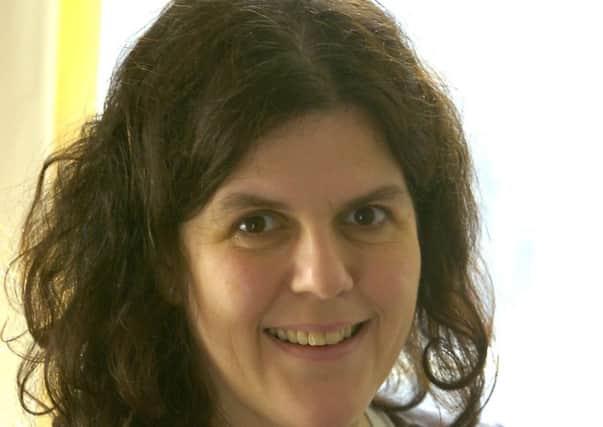Helen Fowler: Eilean Donan Castle and MS don't mix


She’s seen me relying on a walking stick to get even as far as the counter, no wonder she’s doubtful about me exploring the precipitous inclines of the castle.
This should be a sign that I may run into problems, but I decide to ignore these qualms and press ahead anyway. That will turn out to be a mistake.
Advertisement
Hide AdAdvertisement
Hide AdMy daughter and I walk across the bridge from the mainland to the castle itself, me relying on one of my many sticks to do so. Stood at the tips of three separate lochs, the castle has repelled enemies for centuries; it’s becoming increasingly obvious how they managed to do it.
Only the brave-hearted would even try to attack this fortress. Armed with just my stick to help with my wobbliness, I may not be up to this place. The awkwardness is yet another unwelcome gift from my Multiple Sclerosis (MS).
After struggling to climb a set of steep, almost vertiginous, outdoors steps that feel like the ascent of one of the many Munroe mountains around us, I’ve got to stop and pause for breath. Damn; this is difficult.
There were many years when I’d have skipped up the steps, laughing and giggling, not even stopping to think about them. Why didn’t I ever pause to feel grateful for the physical agility I’d got back then?
We’ve come here with the Wee Red Bus, me and one of my children. I doubt I’d have managed this trip under my own steam. Struggling with the exhaustion that’s pretty much constant and frightened of another relapse. I might not have felt safe driving here myself.
Having made it this far I can’t give up. Not now, not after being driven all the way from Edinburgh up to the Highlands in a red Mercedes Benz mini-bus.
Getting across the causeway feels even further than I’ve been imagining in the wakefulness of early morning, but I totter across, clinging onto daughter and walking stick. Once arrived in the castle proper,
I see what the kindly ticket clerk meant when she refused to take any money from me. Okay, a few flights of stairs would be easy for the hordes of tourists overtaking me on the bridge.
Advertisement
Hide AdAdvertisement
Hide AdFor me, it’s a struggle. As soon as I get to the entrance hall, I see a kindly-looking guide and tell her I’m feeling exhausted and at my limit; with her help I sit down on a hastily-convened chair in a little corridor off the entrance hall. Dozens of tourists edge past me while the guide takes my daughter round the castle. I sit quietly and sip a glass of water.
As I sit there, I think about what life must have been like seven hundred years earlier when the castle was a first-line defence against the Danes. I’m no stranger to war-torn conflict myself, albeit of a different kind.
My body is waging war on itself; my immune system laying siege to my brain, attacking the vital conduits (nerves) needed to send signals to my limbs, memory, eyes, tongue, bowel and bladder. My walking makes me look unsteady, as if I’m about to fall over, thanks to my faulty wiring.
I often wish I could just send for an electrician to come and repair me. Even now that a temporary truce has been achieved, thanks to some fancy new medication, my body’s struggling to repair the damage done in the last “attack” or relapse.
It hasn’t been plain sailing for Eilean Donan either. It’s had its share of battles to fight, even getting destroyed completely at one point in an eventful history. But eventually it got re-built; now it’s one of the most iconic castles of Scotland. Somehow that feels symbolic.
*Helen Fowler is a journalist and MS campaigner from Edinburgh